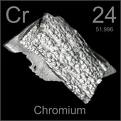
We focus almost entirely on the women's side of infertility on this blog. Now here's information important to the other half of the equation. The beauty of this is…the very advice we're giving to you women…can help men with depression, too. This article comes from Natural News, links are at the bottom.
SSRI Antidepressants Linked To Male Infertility
by S. L. Baker, features writer
(NaturalNews) The Food and Drug Administration (FDA) issued a warning a few years ago that pregnant women taking the selective serotonin reuptake inhibitor (SSRI) antidepressant paroxetine risk giving birth to infants with major birth defects, including heart abnormalities ( http://www.naturaln ews.com/021225_ P…). Now comes word that the same drug (sold as Paxil, Paxil CR, Seroxat, Pexeva, and generic paroxetine hydrochloride) carries another danger that could keep babies from being born in the first place. A new study just published in the online edition of the journal Fertility and Sterility concludes as many as fifty percent of all men taking the antidepressant could have damaged sperm and compromised fertility.
New York Presbyterian Hospital and Weill Cornell Medical Center researchers followed 35 healthy male volunteers who took paroxetine for five weeks. Then sperm samples from the men were studied using an assay called terminal deoxynucleotidyl transferase dUTP nick end labeling (TUNEL) to evaluate whether there were missing pieces of genetic code in the sperm DNA. This condition, know as DNA fragmentation, is associated with reproductive problems.
The results? The percentage of men with abnormal DNA fragmentation soared from less than 10 percent to 50 percent while taking the antidepressant. This is a crucial finding because DNA fragmentation has long been known to correlate with an increased risk of birth defects, poor fertility and unsuccessful pregnancy outcomes — even when high tech, extraordinarily expensive fertility enhancing techniques such as in vitro fertilization and intracytoplasmic sperm injection are used.
The study, one of the first scientific investigations into the effect of SSRIs on sperm quality, also confirmed that paroxetine impairs sexual function. More than a third of the research subjects reported significant changes in erectile function and about half had difficulty ejaculating.
"It's fairly well known that SSRI antidepressants negatively impact erectile function and ejaculation. This study goes one step further, demonstrating that they can cause a major increase in genetic damage to sperm," Dr. Peter Schlegel, the study's senior author and chairman of the Department of Urology and professor of reproductive medicine at Weill Cornell Medical College, explained in a statement to the media."Although this study doesn't look directly at fertility, we can infer that as many as half of men taking SSRIs have a reduced ability to conceive. These men should talk with their physician about their treatment options, including non-SSRI depression medications."
The scientists could not identify the exact way the SSRI caused the DNA fragmentation, but the evidence strongly suggests the drug slows sperm as it moves through the male reproductive tract from the testis to the ejaculatory ducts. When this happens, the sluggish sperm grows old and its DNA becomes damaged.
"This is a new concept for how drugs can affect fertility and sperm. In most cases, it was previously assumed that a drug damaged sperm production, so the concept that sperm transport could be affected is novel," Dr. Schlegel stated.
The study contains some good news for men currently on Paxil and related drugs who may be concerned about their fertility. All the changes the researchers found appeared to be totally reversible. Specifically, normal levels of sexual function and DNA fragmentation both returned to normal one month after discontinuation of the drug.
For more information:
http://news. med.cornell. edu/wcmc/ wc…
http://www.fda. gov/Drugs/ DrugSafety …
http://www.naturaln ews.com/026483_ SSRI_fertility_ DNA.html













